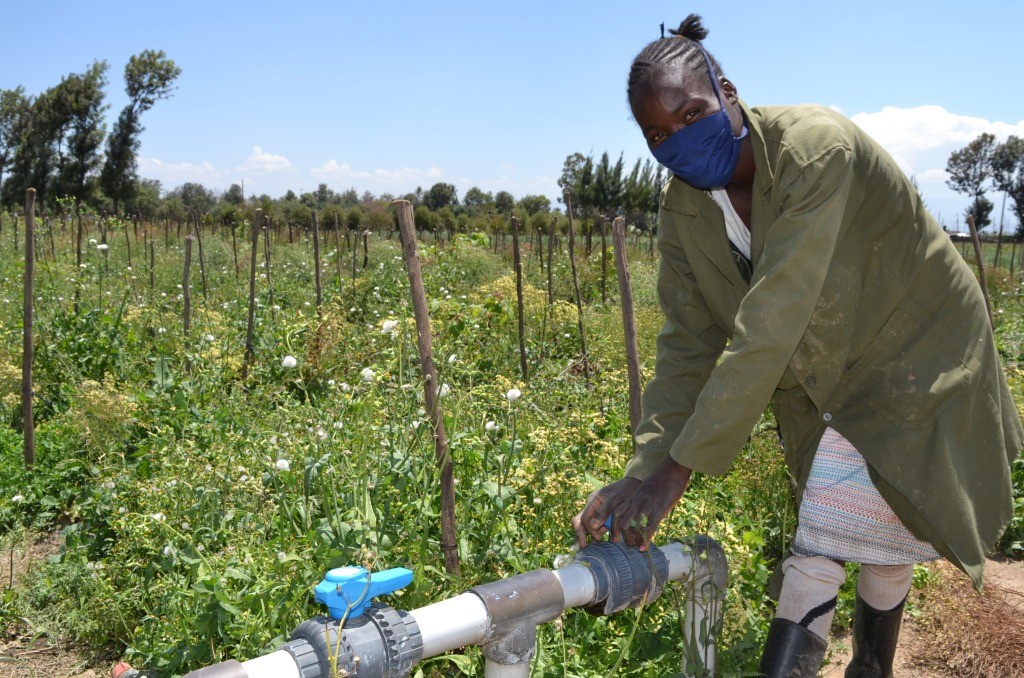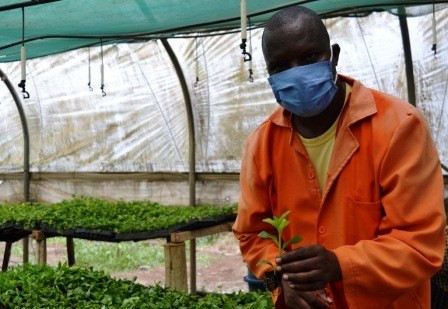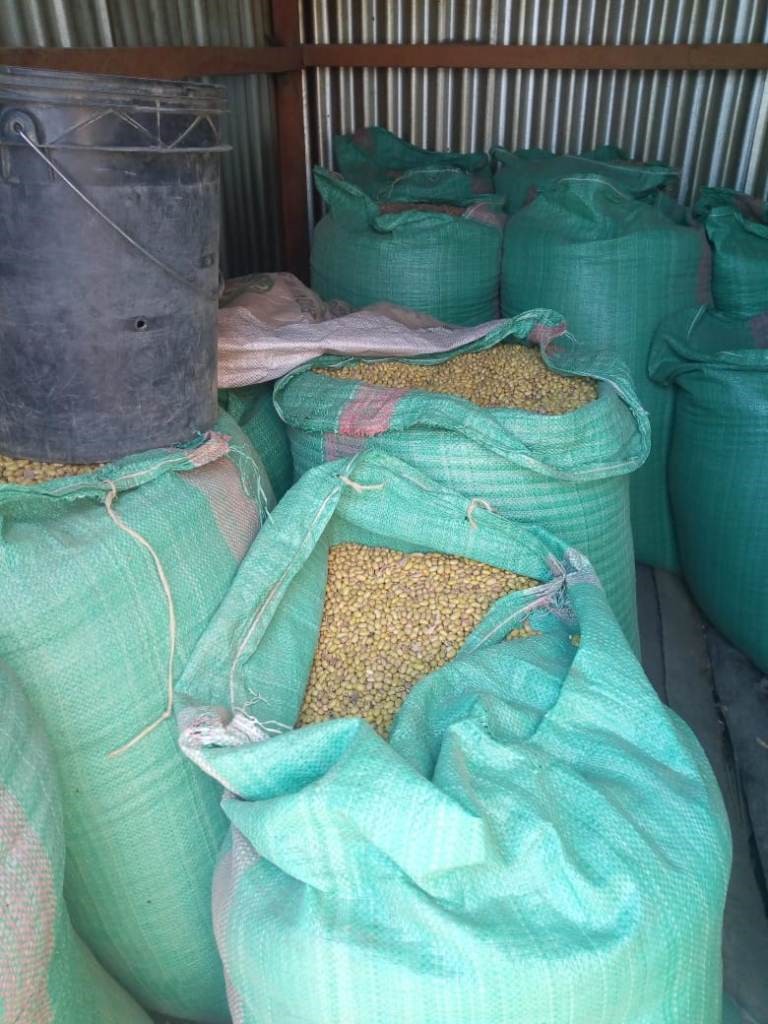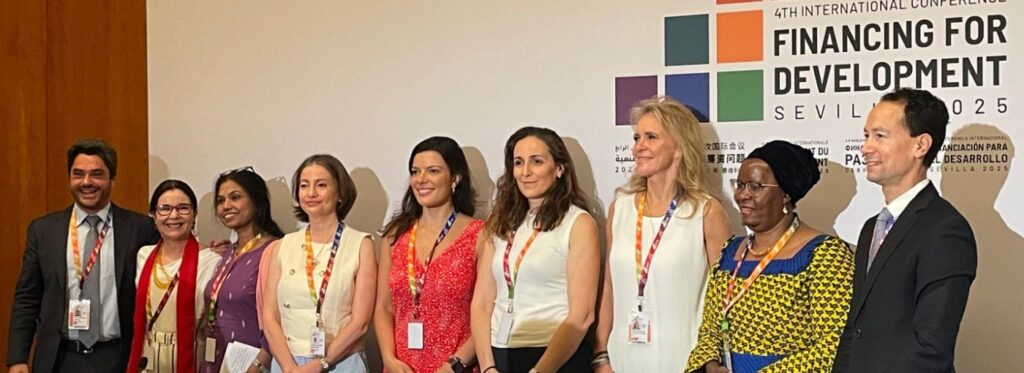When Asha Obonyo, joined Cenacle farm in January 2020, she had a lot of plans for the year. However, her aspirations were disrupted by the Covid-19 pandemic, which almost crippled the flower industry in Kenya. Ms Obonyo who works in the irrigation department, had to stay at home for a few months as the situation gradually improved. She says, life was tough as she had to look for manual jobs to support her family that consists of two children and her husband. “The pandemic affected us more than we had anticipated but we thank our company for being with us during those tough times,” says Ms Obonyo clad in her work dustcoat.
Ms Obonyo resumed work in August 2020 and hopes for the best as the sector picks up. She was among the 30 workers from the company who received cash transfers from the Covid-19 Emergency Response Fund; a kitty established by Hivos and its Women@Work Campaign partners; Ufadhili Trust, Femnet, Kenya Human Rights Commission, Haki Mashinani in collaboration with the Kenya Flower Council.
Asha received an amount of Kenya shillings 2,500 (approximately Euros 20) which she used to pay for basic necessities; she bought food items and used to the rest settle debts that had accumulated following the outbreak of the disease.
 Ms Asha Obonyo, an employee at Cenacle farm in Naivasha-Kenya
Ms Asha Obonyo, an employee at Cenacle farm in Naivasha-Kenya
Mr Bonaventure Mwaghania, Finance Director at Cenacle limited says when the pandemic was reported in the country, the staff and management panicked since the flower market crashed as there were no flights or shipping services. “You had products that you wanted to get to the market but you couldn’t do anything. The workers needed salaries and there was also no cash flow…. It was tough for us,” said Mr Mwaghania.
Mwaghania discloses that in March, the workers were asked to take their accrued leave days, as the management worked on austerity measures. However, he notes that they retained the critical staff such as those in irrigation and security departments while those from other sections were doing only 50 percent of their work. Payment of full salaries resumed in June 2020, after the market situation improved. He adds that, they company didn’t receive any external support beyond what the workers received through Ufadhili Trust and its Women@Work campaign partners.

Mr Bonaventure Mwaghania, the finance director at Cenacle farm.
Protecting the employees and awareness creation
The workers were aware of the challenges facing the company since the management team held numerous meetings with them to highlight the evolving pandemic situation. Ms Cecilia Wangare, a member of the gender committee, said that the going was tough since she had just started work at the farm; however, the management was very supportive of the employees. “The staff took leave. We paid them and those who were coming to work, we agreed to pay them for the days worked and this enabled them to put food on the table,” says Mr Mwaghania.
Health and safety
To protect the workers against Covid-19, the company installed hand washing facilities and sensitized them on the dangers posed by the disease. They were required to adhere to all the guidelines issued by the government of Kenya; observing social distancing, washing hands regularly and putting on facemasks. Mr William Ongubo, chairperson of the health and safety committee says that, they did not hesitate to take precautionary measures following the outbreak of the disease in the country, since workers come from different areas. “We sat with the management and agreed to put up hand washing facilities, provided soap, and we taught the workers how to wash their hands and to put on their facemasks. We also embraced social distancing at our work stations and it worked for us, and so far, no case has been reported at our farm,” said Mr Ongubo.

Mr Hesborne Osoro, the Human Resource Manager, notes that, they engaged the workers to ensure that everyone was safe and secure. Further, he added that all workers were treated equally since everyone was affected by the pandemic.
“We held a meeting with the staff to discuss all the emerging issues and put in place measures to ensure that each person is safe and secure. We were informed about the pandemic due the frequent briefings by government officials in various media outlets,” says Mr Osoro.
Diversification
Mr Mwaghania notes that, to remain relevant, the company turned to food crops production. They grew potatoes, maize, beans which were sold and the rest consumed by the workers in the farm. “During the pandemic, I was thinking about the future of the flower industry in the country and that is why I thought of diversifying to other crops. We sold what we harvested, and this is what sustained the company during the first three months of the pandemic.” he said. The company has picked up and hope to recover for the lost time since 90 percent of the workers are back and anticipate a brighter future says Mwaghania.
 Harvested beans from the flower farm ready for the market.
Harvested beans from the flower farm ready for the market.
Maina Wambugu works for Ufadhili Trust (www.ufadhilitrust.org)
Ufadhili Trust is one of the Women@WorkCampaign implementing partners in East Africa




